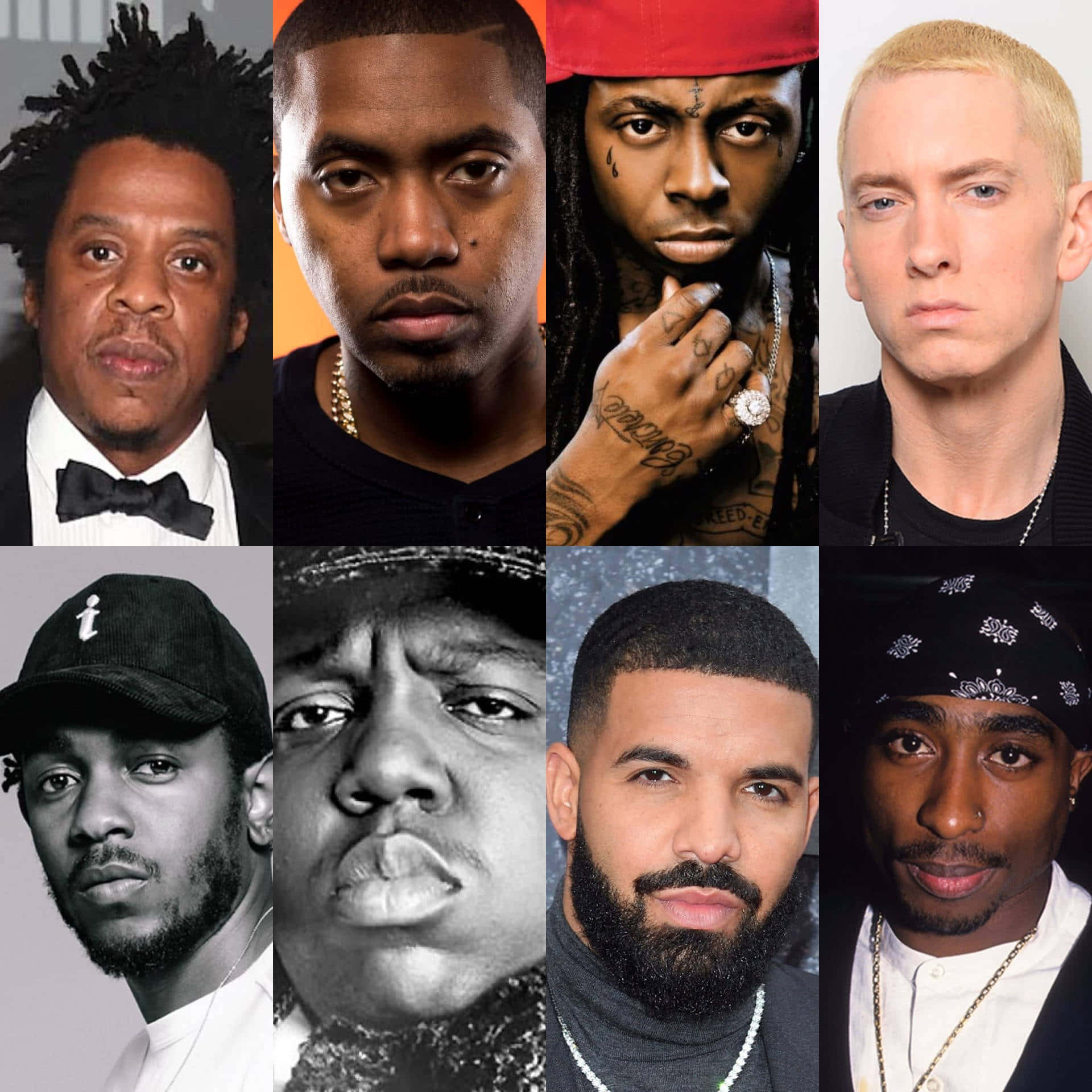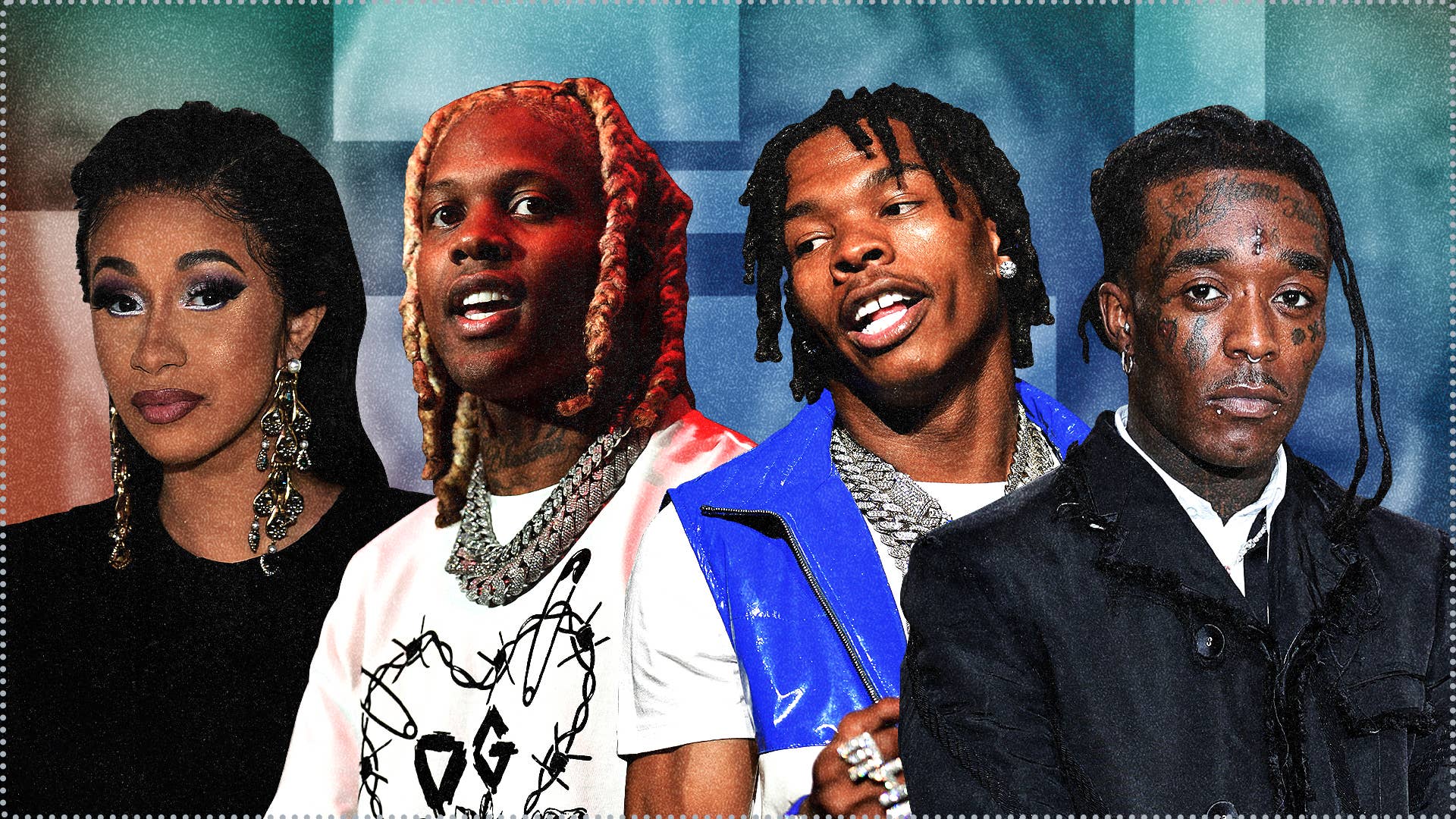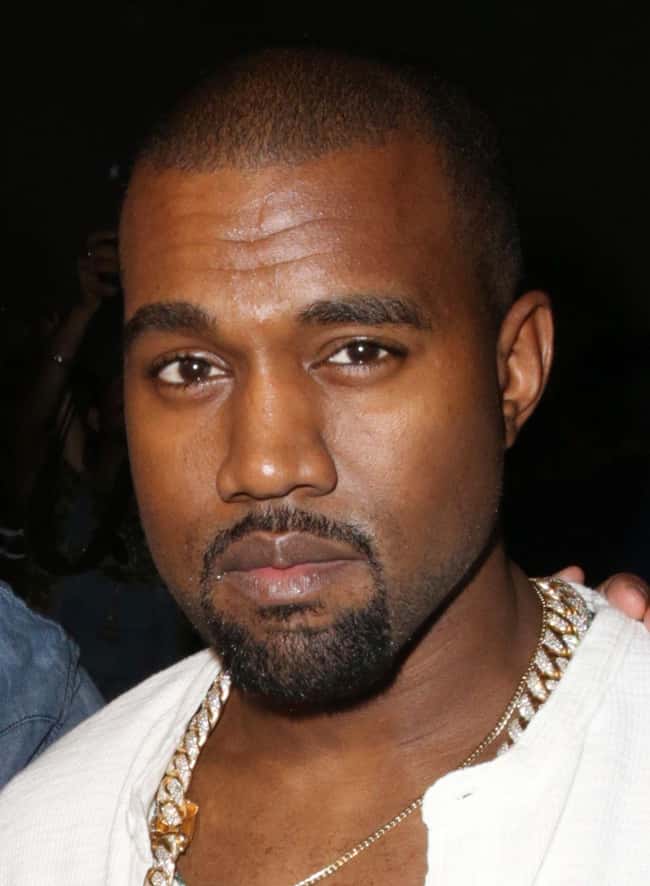The world of music, especially hip-hop, often celebrates stories of overcoming obstacles and making a voice heard. It's a space where raw honesty can really shine through, and people from all walks of life have found a way to share their experiences. One might, in fact, consider how different life paths shape the sounds and messages we hear. This discussion, you know, touches on how unique perspectives add something truly special to the overall musical fabric.
When we think about who gets to stand on stage or have their words echoed by thousands, it's pretty clear that the journey to recognition is a tough one. There are many layers to what makes an artist connect with an audience, and sometimes, those connections come from a place of deep, personal experience. So, it's almost natural to wonder how individuals with varying abilities might find their place and make their mark within this very expressive art form.
This piece will explore some ideas around the presence of rappers with disabilities, thinking about how their contributions might fit into the broader conversations about music, authenticity, and reaching an audience. We will, in a way, consider how the general trends and observations within the rap community could also apply to artists who bring a different kind of life story to their craft.
- I Think Theres Someone Hanging There
- Im The Strongest Dude
- Diddy Carl Wilson
- Diy Jovi The Elf Costume
- Look At Ayton Of Deandre
Table of Contents
- Introduction
- How Do Pageviews Reflect the Presence of Rappers with Disabilities?
- The Stories They Tell: Lyrics from Rappers with Disabilities
- Authenticity and Privilege in the Journey of Rappers with Disabilities
- The "Lil" Phenomenon and the Identity of Rappers with Disabilities
- What About Regional Scenes Like New York Drill and Rappers with Disabilities?
- Skill and the Voice of Rappers with Disabilities
- The Impact of Rappers with Disabilities on the Music World
- Summary of the Article
How Do Pageviews Reflect the Presence of Rappers with Disabilities?
When we look at how popular certain artists are, one way to measure it is through how many people look up their work online. For instance, data shows that the artists who get a lot of attention on platforms where lyrics are shared often line up with the top music makers generally. This, you know, suggests a certain pattern in what captures the public’s interest. It makes you wonder, then, how a similar kind of attention might be given to rappers with disabilities.
Could it be that the stories and sounds brought forth by rappers with disabilities would also gather significant pageviews? It’s a thought, really, that if their art connects with people, the numbers would likely follow. Just as some artists naturally draw a crowd to their online profiles, so too might those who present a perspective that is, in some respects, less commonly heard in mainstream music. The way people seek out lyrics and information about their favorite acts could very well extend to artists who represent a wider spectrum of human experience.
Consider, for a moment, how the act of looking up a song or an artist is a sign of engagement. If a rapper with a disability creates something truly compelling, something that speaks to a wide audience, then the web traffic related to their work would, arguably, grow. This pattern, where popular artists on one platform match the overall top acts, gives us a kind of framework. We can, in a way, use this framework to think about how visibility and appreciation for rappers with disabilities might take shape in the digital space, reflecting genuine interest.
- Australian Breakdance Olympics Performance
- Fore Finger One Thumb Necklace Meaning
- Christina Formella Wedding Website
- Sister Kick Nuts
- Sleep Paralysis Demon Costume
The Stories They Tell: Lyrics from Rappers with Disabilities
Lyrics are, basically, the heart of rap music. They carry the tales, the feelings, and the messages an artist wants to share. Think about a piece like "Rapper's Delight" and its long version; it’s full of words that paint pictures and tell a story, you know? This kind of detailed storytelling is a big part of what makes rap so powerful for listeners. So, it's natural to consider how the experiences of rappers with disabilities could shape the words they put into their songs.
A person's life journey, their everyday interactions, and the challenges they face often become the fuel for their creative output. For rappers with disabilities, their unique outlook could bring a fresh and honest voice to the microphone. They might, in fact, share insights that others simply haven't considered, adding new layers to the ongoing dialogue within the music scene. This sharing of personal narratives is, after all, a cornerstone of the genre.
When artists like Tip and Phife Dawg talk about other emcees who aren't quite up to par, they're often talking about a lack of realness or skill in their words. They swap stories, basically, about what makes a good rapper. This focus on genuine expression and a strong command of language means that the stories from rappers with disabilities, told with skill and heart, could really resonate. Their words might, in a way, offer a different kind of truth, enriching the entire musical landscape with perspectives that are perhaps less common but no less impactful.
Authenticity and Privilege in the Journey of Rappers with Disabilities
The rap world often talks about what’s real and what’s not. There’s a whole idea of "privileged rappers," a concept that digs into how genuine an artist is and whether their path to the top was, in some respects, made easier. This discussion really looks at the demanding trip to becoming a top artist. It makes you wonder, then, how this idea of authenticity and privilege might apply to the journey of rappers with disabilities.
For any artist, showing who they truly are through their music is a big deal. For rappers with disabilities, their personal experiences could, arguably, give them a deep well of authentic material. They might, you know, have faced specific challenges that shape their worldview and, therefore, their art. This could lead to a kind of honesty in their music that really connects with listeners who appreciate raw, unfiltered expression.
The idea of privilege in the music world can mean different things. It might refer to someone having connections or resources that smooth their way. When we think about rappers with disabilities, their path might, in fact, involve different kinds of hurdles, perhaps making their ascent even more of a demanding journey. Their success, then, could be seen as a powerful testament to their talent and persistence, perhaps even redefining what it means to be "privileged" in the music industry.
The "Lil" Phenomenon and the Identity of Rappers with Disabilities
The early 2000s saw a bunch of artists, like Lil Bow Wow, Lil Jon, and Lil Boosie, make a real name for themselves. This trend of using "Lil" in a stage name was, you know, quite popular for a while. There's even content out there that breaks down the story behind these "Lil" rappers. It’s a fascinating part of rap history, and it gets one thinking about how identity, including personal attributes, plays into an artist's public persona.
So, when we consider rappers with disabilities, it brings up questions about how they might choose to present themselves to the world. Would they, for instance, incorporate aspects of their experience into their stage name or public identity, similar to how the "Lil" artists did with their youth or perceived smaller stature? Or would they simply let their music speak for itself, with their personal journey being a background element? It’s a matter of personal choice, of course.
The way artists craft their public image is a big part of how they connect with fans. For rappers with disabilities, this aspect of identity might be something they approach in various ways. They could, perhaps, use their platform to raise awareness, or they might simply be artists who happen to have a disability, with their music being the main focus. The "Lil" phenomenon, in a way, shows how a specific characteristic can become part of an artist's brand, and this principle could, arguably, extend to other personal traits as well.
What About Regional Scenes Like New York Drill and Rappers with Disabilities?
Every now and then, a particular sound or style pops up from a specific place, creating its own scene. For example, there's a quick way to find artists from the New York drill scene and their song lyrics on certain platforms. This shows how local sounds and groups of artists can create a very distinct musical identity. It makes you wonder, then, how rappers with disabilities might fit into or even shape these kinds of regional music scenes.
Could it be that within a specific local sound, like New York drill, there are voices from rappers with disabilities that are contributing to the overall feel and message? It's a thought, really, that local communities often reflect the diverse people who live there. So, it would be quite natural for these scenes to include artists from all walks of life, including those who have different physical or cognitive experiences. Their unique perspectives could, in a way, add a different flavor to the established sound.
The strength of a local music scene often comes from its ability to represent the lives and stories of its residents. For rappers with disabilities, finding a place within a scene like New York drill could offer a powerful platform for their art. They might, you know, bring a fresh lyrical approach or a distinct flow that helps define the sound of their neighborhood. The fact that platforms make it easy to find artists from these specific areas suggests an openness to exploring the diverse voices that make up a regional style.
Skill and the Voice of Rappers with Disabilities
When artists like Tip and Phife Dawg critique other emcees, they're often talking about whether someone truly has the talent and ability to deliver compelling rhymes. They engage in a kind of story-swapping dialogue about what makes a rapper truly stand out. This focus on genuine skill is, you know, a very important part of what makes rap music so engaging. It brings up a question about how the talent of rappers with disabilities is perceived and valued within the music community.
The ability to craft clever lines, to have a strong presence on the mic, and to tell a story through rhythm and words are all elements of what makes a rapper good. These qualities are, arguably, not tied to physical ability but to creativity, intellect, and practice. So, it could be said that rappers with disabilities would be judged on the same merits as any other artist: their lyrical prowess, their flow, and their overall artistic contribution.
If the conversation among seasoned artists centers on a lack of skill, then it stands to reason that true talent, regardless of who possesses it, would be recognized. Rappers with disabilities, just like any other aspiring artist, would need to hone their craft and demonstrate their capabilities. Their voice, their unique way of expressing themselves, could, in fact, become a source of great artistic strength, proving that skill is about the art itself, not about a person's physical make-up.
The Impact of Rappers with Disabilities on the Music World
Thinking about all these different aspects of the music world—how popularity is measured, the stories told in lyrics, the ideas of what’s real, the way artists get their names, and how local sounds come together—it all leads to a bigger idea. We can, in a way, consider how the presence of rappers with disabilities might shape the music scene as a whole. Their contributions could, arguably, bring about new conversations and new forms of expression.
When artists with diverse backgrounds step into the spotlight, they often open up new avenues for creativity and understanding. For rappers with disabilities, their unique perspectives could, you know, lead to songs that resonate with a broader audience, perhaps even those who haven't felt truly represented in music before. This kind of expansion of voices is, basically, what keeps any art form fresh and moving forward.
The music world is always changing, and new artists are always bringing something different to the table. The inclusion and recognition of rappers with disabilities could mean a richer, more varied soundscape for everyone. It could, in fact, encourage more people to pursue their musical dreams, knowing that their unique journey is a valid and valued part of the artistic process. This kind of influence is what truly makes a lasting mark on culture.
Summary of the Article
This piece has explored how the idea of rappers with disabilities connects with various aspects of the music world, drawing from observations about artist popularity, the power of lyrics, and discussions around authenticity. We considered how online attention, like pageviews, might reflect their presence, and how their personal stories could add depth to rap lyrics, similar to how "Rapper's Delight" shares narratives. The article also looked at how themes of genuineness and advantage, often discussed in relation to "privileged rappers," might apply to the unique journeys of artists with disabilities. Furthermore, we touched on how naming trends, such as the "Lil" phenomenon, relate to artist identity, and how regional sounds, like the New York drill scene, could be spaces for diverse voices. Finally, the discussion covered how artistic skill, a key point of critique among seasoned emcees, remains the central measure of talent for all artists, including rappers with disabilities, ultimately shaping their impact on the broader music landscape.



Detail Author:
- Name : Destinee Kuhn
- Username : alfonso.abbott
- Email : concepcion65@mccullough.com
- Birthdate : 1990-11-18
- Address : 5653 Guy Plains North Willard, TN 71648
- Phone : (763) 505-6312
- Company : Kling LLC
- Job : Air Crew Member
- Bio : Et et temporibus occaecati qui. Quia harum dolorum praesentium voluptatem recusandae possimus sequi. Harum tempora consectetur cum vel cumque qui.
Socials
facebook:
- url : https://facebook.com/jbayer
- username : jbayer
- bio : Voluptates voluptatem expedita delectus quia impedit dolores placeat.
- followers : 461
- following : 1983
twitter:
- url : https://twitter.com/justice_bayer
- username : justice_bayer
- bio : Consequatur vero vel excepturi voluptates autem. Recusandae atque dolores cumque aut et et. Expedita sint molestiae tenetur recusandae non ut voluptas.
- followers : 2852
- following : 664
tiktok:
- url : https://tiktok.com/@justice_bayer
- username : justice_bayer
- bio : Architecto minus officiis itaque placeat atque velit voluptatem.
- followers : 3093
- following : 1802